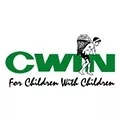


Child Workers in Nepal Concerned Centre (CWIN-Nepal) is a pioneer child rights organization in Nepal. It was established in 1987 by a group of university students as a movement which brought a fresh approach to social work, defying the convention of charity and heralding a new concept of rights, empowerment and activism. CWIN works for the advocacy, protection and promotion of the rights of the child through lobbying, campaigning, developing social consciousness and different integrated community development programs. It also directly works with children at risk that is in need of rescue, support, socialization, education, empowerment and social reintegration. CWIN is a voice for children. In order to translate the CWIN conception of working “for children, with children” into action, priority is given to promoting and ensuring children’s rights to participation.
Child Workers in Nepal Concerned Centre (CWIN-Nepal) is a pioneer child rights organization in Nepal. It was established in 1987 by a group of university students as a movement which brought a fresh approach to social work, defying the convention of charity and heralding a new concept of rights, empowerment and activism. CWIN works for the advocacy, protection and promotion of the rights of …
Views: 4657 | This job is expired 1 year, 4 months ago
Position: GBV Coordinator
Project: Strengthening child helplines (1098) for prevention of and response to child protection and GBV issues and operationalizing effective referrals
Reports to: MEAL Manager, Executive Director
Involvement in the project: 100%
Salary and Benefits: Basic Salary 60,000 plus benefits as per organizational rule
Tentative Tenure: 12 Months
Project Background
Violence against children, women, and girls, gender-based violence (GBV), child marriage, child labour, trafficking, unnecessary placement of children in orphanages or residential care homes, and limited access to child-friendly and gender-sensitive justice systems and birth registration are all concerns in Nepal. To address these challenges in a systematic and effective manner, the Nepalese government is actively working to strengthen the child protection system in collaboration with UNICEF. The establishment and operation of child helplines (1098) is a critical component of Nepal's child protection system. These helplines play an important role during crises and are an essential component of the child protection framework. Early detection, guidance, counselling, rescue operations, family tracing, reintegration, and psycho-social support are all part of their services. Child helplines should be firmly integrated into the system, adequately staffed, and recognised as a critical child protection service to ensure their effectiveness. This recognition should include establishing appropriate links with various sectors such as justice, law enforcement, health, education, psychosocial support, and social protection. Nepal Telecommunication Authority currently operates nationwide child helplines in collaboration with service providers such as Nepal Telecom and Ncell/Axiata. The Children's Act 2018 and the Child Helpline 1098 Operational Procedure 2018 govern these operations. UNICEF supports ten of the 18 operational helplines (1098) in Nepal. These helplines should strengthen their ties with social reintegration networks and services to be more effective. Collaboration with self-reliance/peer educators, job placements, connecting with girls' networks to empower survivors of GBVs, assisting rescue operations, and contributing to the overall child protection system are all part of this. Using technology to deliver child protection and mental health services to children and youth is critical. It includes efforts in prevention, assessment, diagnosis, counselling, and response. Changing from traditional call centre systems to cloud-based solutions improves the productivity and accessibility of child helplines. This change enables remote access to the database that stores children's calls, allowing operations to take place from any location. Cloud solutions also improve the efficiency of child helplines by consolidating data from multiple sources and streamlining communication with children. The flexibility provided by a cloud-based system improves active engagement and responsiveness while saving time through communication on various digital platforms. The proposed programme is consistent with several SDGs, including SDG 3.4 (promoting mental health and wellbeing), SDG 5.2 (eliminating violence against women and girls), SDG 5.3 (eliminating harmful practises such as child and early marriages), and SDG 8.7 (ending the worst forms of child labour). It also helps to achieve SDG 16.2 (zero tolerance of child abuse, exploitation, trafficking, and violence) and SDG 16.9 (ensuring legal identity for all, including birth registration). Collaboration with civil society organisations (CSOs) is critical for increasing the reach and coverage of the child helpline (1098) and assisting at-risk children and survivors. A carefully selected CSO partner is critical in identifying and assisting with cases that advance child safeguarding and protection. This collaboration also strengthens responses by leveraging existing resources within child helplines, ultimately increasing their effectiveness in ensuring Nepalese children's well-being.
Key Responsibility
Planning
The GBV Coordinator should demonstrate competence in following:
Person Specification
This is a full-time position, linked to the duration of the program starting in February 2024 and finishing in January 2025.
This job has expired.









